 Daughter #3 turns 18 today — my elf-child, the little curly-haired blondish creature who at age 4 wanted to marry her father and have me be their “little kid” — the 10-year-old who had a summer goal to swim every day until school began in September — the irrepressible 14-year-old who turned our lives upside down with her right-on-schedule adolescent antics. Eighteen!
Daughter #3 turns 18 today — my elf-child, the little curly-haired blondish creature who at age 4 wanted to marry her father and have me be their “little kid” — the 10-year-old who had a summer goal to swim every day until school began in September — the irrepressible 14-year-old who turned our lives upside down with her right-on-schedule adolescent antics. Eighteen!
Before I had children: 1) I had a much better memory for faces and names, and I prided myself on always knowing all of my students from the first day of class onward; and 2) I thought I had all the time in the world.
I was going to write, sure (I was born to write!). But I could do it this afternoon, or tomorrow, or sometime next week, or when this quarter was over, or when the summer or holiday break finally came. No hurry.
After my husband and I adopted twin daughters when I was 37 years old, I found myself standing in a classroom at the University of Washington campus, and declaring to my students in a slightly huffy, slightly hysterical voice:
“My children are not going to be my newest excuse to avoid writing!”
If I’m remembering it correctly, I had been attempting to explain the importance of making time for writing — something I had not been doing — and an older student, in a knowing and reassuring tone, said, “You’ll write when your kids are older.”
You don’t write because you have scads of time. You don’t write because you have a great idea to write about (of course you do!). You write because you have a habit of writing. You develop a habit of writing, by writing. And this is true for all of us, children or no.
I’ve also heard so-called experts say that if you’re a writer, then you don’t have to be encouraged to write. But I think encouragement is a fine thing, especially if your days are getting eaten up by birthday parties for ankle-biters. (I mean, cherubic darlings.)
First forget inspiration. Habit is more dependable. Habit will sustain you whether you’re inspired or not. Habit will help you finish and polish your stories. Inspiration won’t. Habit is persistence in practice. You don’t start out writing good stuff. You start out writing crap and thinking it’s good stuff, and then gradually you get better at it. That’s why I say one of the most valuable traits is persistence”. ― Octavia E. Butler
So while you’re waiting for your big idea, for the room of your own that you think you need to write about your big idea, work right now on your habits.
Here’s how you do that:
- Always, always carry a notebook and many, many pens (the kids will carry them off or lose the caps and the ink will dry up, so you have to have spares)
- Date your work — I write the full date — Thursday, 20 July 2017 — at the top of the page and if I’m not at home I also write where I am writing (believe me, you will NOT remember any of this later) — dates will help you assemble things when you can sit down in front of a screen
- Believe that you can write with a child in your lap, at the pool during their swim lessons, during soccer practices, while they wait in line at the DMV to take their driving test
- Keep a notebook in the laundry room
- If your child or children fall asleep when you are driving, park the car and scribble at the side of the road (and, yes, if you don’t find a safe and somewhat private place to do so, eventually you can expect a State Patrol officer to knock at your window to see if you’re okay)
- If these writing breaks don’t work great at first, by the way, just keep at it and trust the force — practice will turn them into your superpower
- I learned this from a Positive Parenting book — if your children are fighting in the car and distracting you, pull over and write (the actual advice was to whip out a novel, but why shouldn’t it be your own novel?) — you’ll be surprised at how effective this is as a parenting strategy, and when it’s not, you’ll probably surprise yourself with how deeply and quickly you can sink into a snippet of work
- Write snippets in your head and memorize them — lovely little images that come to you, voices of weird and wacky characters, little kid things that you wouldn’t believe could happen if you weren’t witnessing it firsthand
Give up forever your dream of getting blocks of time. You do not need blocks of time, you need a few minutes there and fifteen minutes here and the occasional uninterrupted hour. On the other hand, if someone invites you to a weekend writing retreat and your spouse or some other suitable caregiver agrees, jump at the chance.
And please, please take note of this — your children will get older, but being their mom is probably not going to get easier. If you have a habit of using them as an excuse then it will soon enough be your grandchildren’s chance to take over that role.
You can download the PDF of my very short book, A Writer’s Alchemy, for more pointers about writing every day.
Most of all, write now.




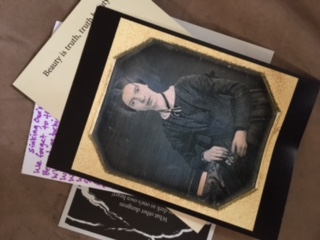
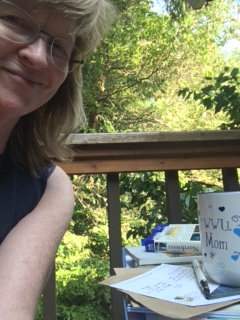
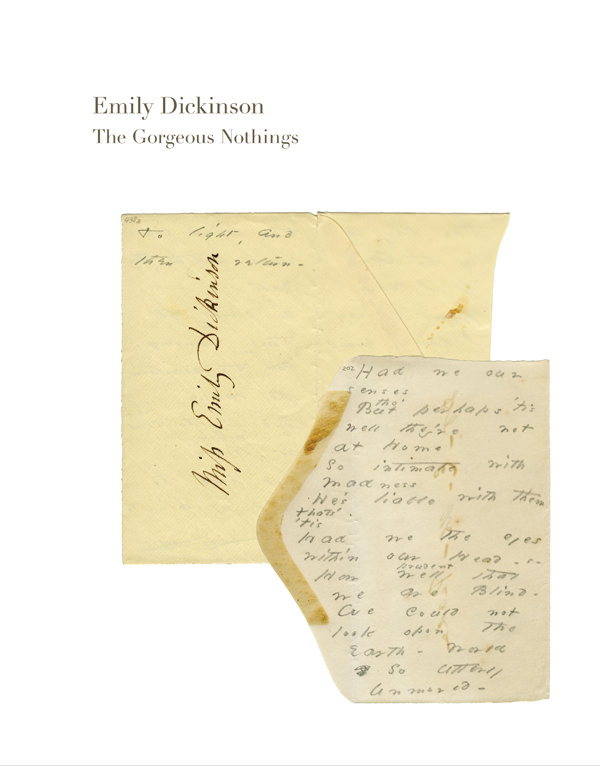

 Daughter #3 turns 18 today — my elf-child, the little curly-haired blondish creature who at age 4 wanted to marry her father and have me be their “little kid” — the 10-year-old who had a summer goal to swim every day until school began in September — the irrepressible 14-year-old who turned our lives upside down with her right-on-schedule adolescent antics. Eighteen!
Daughter #3 turns 18 today — my elf-child, the little curly-haired blondish creature who at age 4 wanted to marry her father and have me be their “little kid” — the 10-year-old who had a summer goal to swim every day until school began in September — the irrepressible 14-year-old who turned our lives upside down with her right-on-schedule adolescent antics. Eighteen!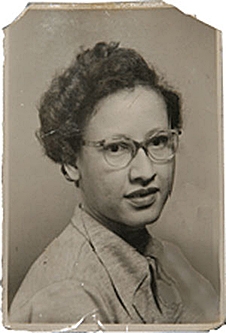
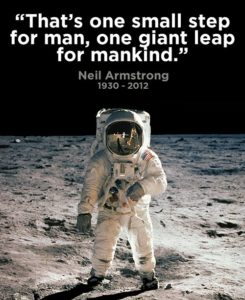 I recently took my husband and two of my daughters to see
I recently took my husband and two of my daughters to see